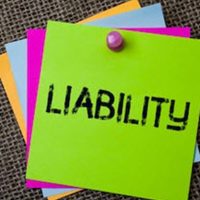Commercial Vehicle Accidents & Comparative Fault

It is not uncommon for people who have been through a serious auto accident – particularly one involving a large commercial vehicle – to be unable to reconstruct events. Things happen so quickly in this kind of situation, and between shock, fear, and self-preservation, an injured person may not truly know whose actions led to the crash. If you have been involved in this type of accident, and are seeking damages for your injuries, a concept named comparative fault might complicate matters (depending on the facts of your situation).
Establishing Negligence
If someone is injured in a road accident, and they choose to seek damages, they would do so in most cases under a legal theory known as negligence. In order to establish that a defendant has been negligent, Florida law requires that four things be shown in a plaintiff’s case. They are:
- A defendant must owe a duty to exercise reasonable care toward the plaintiff – and in Florida, every road user must exercise reasonable care toward every other road user. That said, “reasonable” may change depending on the vehicle one is driving;
- Breach of duty. It must be established that the defendant’s actions (or lack thereof) breached that duty of care;
- Injury to the plaintiff, whether physical or emotional; and
- A showing that the defendant’s actions were the direct cause, with no other supervening events, in causing the plaintiff’s injuries.
In short, if a plaintiff can show that the defendant’s actions were the direct cause of their tangible injuries, the defendant will be found civilly liable.
Who Is Ultimately Liable?
If an injured plaintiff chooses to file suit against the commercial vehicle driver who allegedly caused their injuries, they will usually try to file suit against the driver’s employer as well. This can be done because of a concept known as vicarious liability – in certain situations, an employer may be liable for the actions of their employees, but certain criteria must be established in order for this to apply.
It may be that the driver and their employer will be deemed fully liable for the injuries a person has suffered, particularly in cases involving large commercial vehicles, which are often driven recklessly for a variety of reasons. However, it is also possible for the plaintiff’s own negligence to have played a role in causing their own injuries, known as comparative fault. Florida’s law on comparative fault holds that if a person is found to be more than 50 percent liable for their own injuries, they cannot recover any damages at all.
Contact A Tampa Commercial Vehicle Accident Injury Attorney
If you have been injured in a crash involving a commercial vehicle, you may choose to file suit against them, in order to recover money damages. However, it is important to be able to examine just how much liability each potential defendant might bear. A Tampa commercial vehicle accident injury attorney from the Rinaldo Law Group can help clarify any confusion for you and yours. Contact our office today to schedule a free consultation.
Source:
leg.state.fl.us/statutes/index.cfm?App_mode=Display_Statute&URL=0700-0799/0768/Sections/0768.81.html












